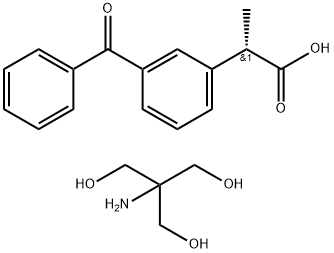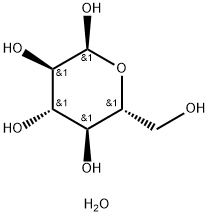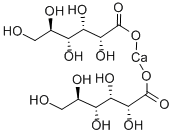Dextran
Synonym(s):Dextran;DEXTRAN 40;DEXTRAN 70;Dextran Ladder
- CAS NO.:9004-54-0
- Empirical Formula: C17H32O10
- Molecular Weight: 396.42998
- MDL number: MFCD00130935
- EINECS: 232-677-5
- SAFETY DATA SHEET (SDS)
- Update Date: 2025-01-27 09:38:02

What is Dextran?
Absorption
Dextran presents a very low oral bioavailability that is reduced as the chain gets longer. Thus, the bioavailability of dextran is inversely proportional to the length of the carbohydrate chain.
Toxicity
Some reports have shown adverse effects when used in therapeutical doses and some teratogenic effects have been demonstrated when used in large doses. The current LD50 reported in rats is 10700 mg/kg.
Description
Dextrans are glucose polymers produced by bacteria linked in
an α-1,6 chain and having an α-1,3 or α-1,4 branch about every fifth residue. The specific
positioning of the branching varies by the bacterium producing it. The molecular weights of these
chains generally are 40 or 70 kDa (dextran-40 and dextran-70, respectively), and the compounds
work via an osmotic gradient similar to the colloids and hypertonic crystalloid solutions.
Dextrans have a longer intravascular
residence time
than albumin, which limits interstitial edema. As with the crystalloids and other colloids, the dextrans
have no oxygen-carrying capacity. Furthermore, because they are bacterial products, the dextrans
have the potential to be potent antigens and induce anaphylaxis.
Chemical properties
white crystals or powder
Originator
LMD 10%,Abbott,US,1967
The Uses of Dextran
dextran is a polysaccharide with water-binding properties. It is also used to control product viscosity. Some studies indicate a capacity to enhance the anti-aging activity of formulations containing weak acids, as well as to reduce possible skin irritation arising from such acids.
The Uses of Dextran
Dextran is a polysaccharide composed of glucose molecules used as an antithrombotic to reduce blood viscosity and as a volume expander in anemia. Studies show that it inhibits the mannose receptor-med iated clearance of tissue-type plasminogen activator (t-PA).
The Uses of Dextran
also available in pharma grade
The Uses of Dextran
exhibit borad spectrum of biological activities, with very low anticoagulant capacity: they activate lipoprotein elimination by lipase stimulation, inhibit cell proliferation in vascular wall, regulate transport of plasmatic proteins and inhibit depositi
The Uses of Dextran
antiinflammatory veterinary drug
Indications
Dextran is used as the restoration of blood mass during surgical interventions if there is hypovolemia due to trauma or dehydration. It is as well used after the presence of hemorrhage in cases of blood loss to a level inferior to 15% of the blood mass, if compatibility test cannot be completed or when blood lots need to be tested for pathogen detection. Dextran is also used for the prevention of profound postoperative venous thrombosis.
Dextran as well presents ophthalmic applications as solutions or ointments for the temporary relief of xerophthalmia or minor ocular irritations.
Background
Dextran is a polysaccharide that differs from others in that its glucose units are joined together 1:6 glucoside links. The main chain of glucose has short branches at frequent intervals which are probably joined by 1:3 and 1:4 glucoside links. The chains can be composed of about 200,000 glucose units. Many bacteria, like Leuconostoc, can synthesize dextran from sucrose, and this activity is used commercially to obtain dextran.
Dextran 40 is a sterile, nonpyrogenic preparation of low molecular weight dextran (average mol. wt. 40,000) in 5% Dextrose Injection or 0.9% Sodium Chloride Injection. It is administered by intravenous infusion.
Dextran 75 is a complex branched glucan with an average molecular weight 75000 Daltons. It is produced from certain bacteria that with α-1,6 glycosidic linkages between glucose molecules and α-1,3 linkages between branches. When labelled with technetium Tc99m, dextran 75 is intravenously administered as an imaging agent to detect and diagnose conditions in the vascular compartment such as pericardial effusion or ventricular aneurysm.
What are the applications of Application
Dextran is a multi-use, branched glucan
Definition
dextran: A glutinous glucose polymerproduced by certain bacteria. Itcan be made by fermenting sucrose(cane sugar) and is used as a thickeningagent, as a stabilizer in ice cream,and as a substitute for plasma inblood transfusions. Esters with sulphuricacid yield sodium salts thatare employed as anticoagulant drugs.
Manufacturing Process
Sucrose is subjected to the action of the bacterium Leuconosfoc mesenteroides B 512 and the crude, high-molecular weight dextran thus formed is hydrolyzed and fractionated to an average molecular weight of about 40,000 as measured by light-scattering techniques.
brand name
Gentran 40 (Baxter Healthcare).
Therapeutic Function
Plasma extender
General Description
Dextrans are polysaccharides with molecular weights ≥1,000 Dalton, with a linear backbone of α-linked D-glucopyranosyl repeating units. Dextrans are found as bacterial extracellular polysaccharides. They are synthesized from sucrose by Leuconostoc mesenteroides and Lactobacillus brevis. Bacteria employ dextran in biofilm formation or as a protective coating to evade host phagocytes in the case of pathogenic bacteria.
Dextran from Leuconostoc mesenteroides (Mw: 12,000) may be used as an analytical standard to calibrate the column for gel permeation chromatography (GPC).
Biochem/physiol Actions
Dextran is a branched glucan composed of linear a(1→6) linked glucose units and a (1→3) link initiated branches. Dextran ranges in size from 10,000 to 150,000 Kd. Dextrans are used in many applications as volume extenders, stabilizers, matrix components, binding platforms, lubricants and physical structure components.
Mechanism of action
Pharmacokinetics
It is reported that dextran presents an effect on the hemostatic system in particular by prolonging bleeding time. In the same trials, dextran is reported to reduce emboli, reduce platelet adhesiveness and produce hemodilution. These effects have been showed to be greater proportionally with the increase in the molecular weight of the dextran.
Safety Profile
Suspected carcinogen with experimental carcinogenic data. When heated to decomposition it emits acrid smoke and fumes. See also other DEXTRANS.
Veterinary Drugs and Treatments
Dextran 70 is a relatively low cost colloid for the adjunctive treatment of hypovolemic shock. Hetastarch is the more commonly employed synthetic colloid used today.
Metabolism
Long chains of dextran such as dextran 60 are highly metabolized in the liver until formation of lower molecular weight products before being excreted from the body.
Purification Methods
Solutions of dextran keep indefinitely at room temperature if 0.2mL of Roccal (10% alkyldimethylbenzylammonium chloride) or 2mg phenyl mercuric acetate are added per 100mL solution. This inhibits mould growth. [Scott & Melvin Anal Biochem 25 1656 1953.]
Properties of Dextran
| Melting point: | 483 °C (decomp) |
| alpha | 198 º |
| refractive index | 185 ° (C=6, H2O) |
| storage temp. | 2-8°C |
| solubility | H2O: soluble50mg/mL, clear to very slightly hazy, colorless to faintly yellow |
| form | Solid |
| color | White to slightly off-white |
| PH | 2 - 10 |
| Water Solubility | Soluble in water, dimethyl sulfoxide, ethylene glycol and glycerol. |
| Merck | 14,2948 |
| Stability: | Stable. Keep dry. Incompatible with strong oxidizing agents. |
| EPA Substance Registry System | Dextran (9004-54-0) |
Safety information for Dextran
| Signal word | Warning |
| Pictogram(s) |
 Exclamation Mark Irritant GHS07 |
| GHS Hazard Statements |
H303:Acute toxicity,oral |
| Precautionary Statement Codes |
P270:Do not eat, drink or smoke when using this product. P301+P312:IF SWALLOWED: call a POISON CENTER or doctor/physician IF you feel unwell. P403:Store in a well-ventilated place. |
Computed Descriptors for Dextran
Dextran manufacturer
New Products
Tetrabutylammonium iodide (3,3-DIFLUOROCYCLOBUTYL)METHANOL 4,4-DIFLUOROCYCLOHEXANAMINE Cyclobutylamine (S)-3-Fluoro-pyrrolidine hydrochloride 3-Oxocyclobutanecarboxylic acid N-Hydroxy-2-methylpropanimidamide L-tert-Leucine,97% 2-Bromophenylacetonitrile, 97% Aluminum oxide, basic Calcium hydroxide, 95% Diallylamine, 99% 2-Iodobenzoic Acid 3-Methoxybenzonitrile Pentachlorobenzonitrile Chloral Dibenzoyl Peroxide Titanium Dioxide O-Benzylhydroxylamine Hydrochloride 2-Nitrobenzaldehyde 2-Picolylamine (2-Aminomethylpyridine) 2-Venylpyridine Ethyl-2-Chloroacetoacetate 4-Dimethylamine PyridineRelated products of tetrahydrofuran








You may like
-
 Dextran ex. Leuconostoc Sp. - Tech 40 (35-45) CAS 9004-54-0View Details
Dextran ex. Leuconostoc Sp. - Tech 40 (35-45) CAS 9004-54-0View Details
9004-54-0 -
 Dextran 4 Calibration CASView Details
Dextran 4 Calibration CASView Details -
 Dextran 10 Calibration CASView Details
Dextran 10 Calibration CASView Details -
 Dextran 1 CASView Details
Dextran 1 CASView Details -
 Dextran 40 Calibration CASView Details
Dextran 40 Calibration CASView Details -
 Dextran 250 Calibration CASView Details
Dextran 250 Calibration CASView Details -
 Dextran 70 CASView Details
Dextran 70 CASView Details -
 Dextran 40 CASView Details
Dextran 40 CASView Details